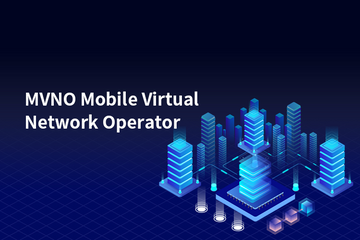Exploring the Differences Between MVNO Operators and Traditional Telecom Operators

Introduction
In the dynamic realm of mobile telecommunications, two distinct players dominate the landscape: MVNO (Mobile Virtual Network Operator) operators and traditional telecom giants. As a consumer, understanding their contrasting features is essential in making an informed choice. In this captivating blog post, we'll explore the differences between MVNO operators and traditional telecom giants, highlighting their individuality to help you find the perfect fit for your mobile needs.
Ownership and Infrastructure
MVNO Operators: Embracing innovation, MVNO operators don't own the physical network infrastructure. Instead, they harness the prowess of traditional telecom giants by leasing network capacity. This strategic move allows MVNOs to swiftly enter the market without incurring exorbitant infrastructure costs.
Traditional Telecom Giants: Boasting their own formidable network infrastructures, traditional telecom giants have invested heavily to provide seamless coverage and comprehensive services.
Branding and Marketing
MVNO Operators: MVNO operators captivate audiences with their captivating branding and marketing strategies. By crafting unique identities, they intricately tailor their offerings to specific customer segments. Their personalized plans and services deliver an unparalleled customer experience that resonates on a deeper level.
Traditional Telecom Giants: Established telecom giants primarily rely on their renowned brand names. They focus on widespread market coverage and standardized plans to cater to a broader customer base.
Pricing and Plans
MVNO Operators: With nimble operations, MVNO operators unleash the power of competitive pricing and flexible plans. Free from the burden of extensive overhead costs, they offer affordable options and specialized plans that cater to niche demographics or distinctive usage patterns.
Traditional Telecom Giants: Traditional telecom giants present a range of plans, varying in features and pricing tiers. Their offerings cater to a wider customer base, often incorporating bundled services and loyalty programs.
Customer Support and Service Quality
MVNO Operators: The quality of customer support and service may vary among MVNO operators as they rely on the infrastructure of traditional telecom giants. However, standout MVNOs prioritize exceptional customer experiences, with dedicated support teams and innovative self-service options that streamline interactions.
Traditional Telecom Giants: Renowned for their comprehensive customer support and top-notch service quality, traditional telecom giants leverage their vast resources and established infrastructure. They boast dedicated support channels, physical stores, and nationwide coverage.
Conclusion
When selecting a mobile service provider, discerning the contrasting attributes of MVNO operators and traditional telecom giants is paramount. MVNO operators bring distinctive branding, flexibility in plans, and competitive pricing to the table, while traditional telecom giants offer expansive coverage and a proven track record of service quality. Consider your unique requirements, budget, and preferences to make a truly personalized choice that aligns perfectly with your mobile communication needs. For short-term tourists, certain MVNO operators may be more convenient. However, if you have higher expectations for network quality and wish to avoid any disruptions to your travel experience caused by unreliable networks, traditional telecom operators are undoubtedly the best choice.












